The Collective founder Louise Clark wants to change perceptions of second-hand clothing and furniture
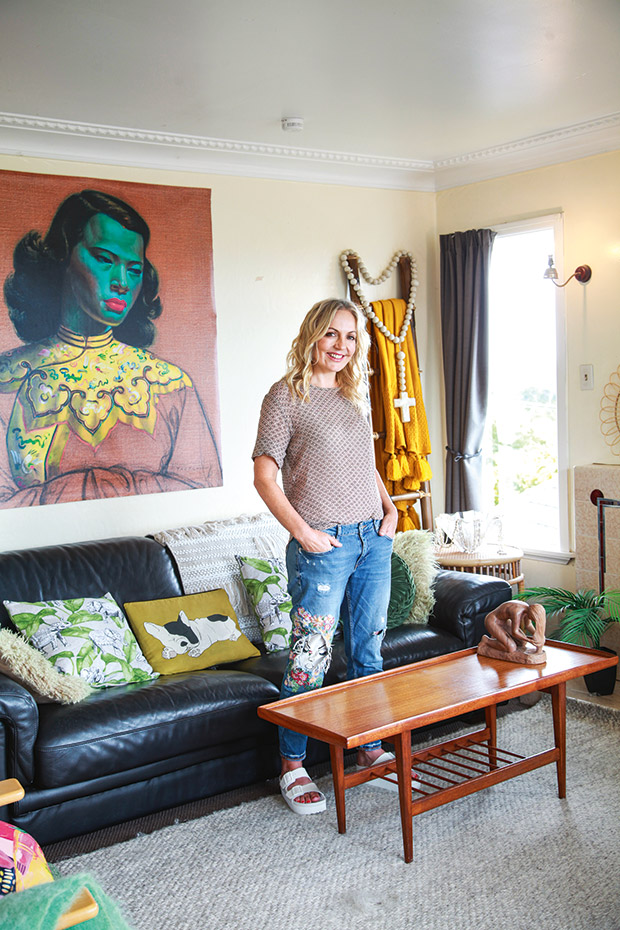
This Auckland mum says it’s time to take a second look at second-hand.
Words: Emma Rawson Photos: Sally Tagg
At the back of The Collective, a recycled clothing and furniture store in Birkenhead, Auckland, a small team of volunteers provides TLC to the waifs, strays and casualties of 80 years of consumer culture.
Retired boat-builder Trevor Laskey is sanding down a teak table, once the star of a 1970s dining room, but now marked with the rings of hot cups of tea left by well-meaning children bringing mum a cuppa. Philip Barnes is general manager at Accreditation Services during the week but volunteers at the weekends. He is removing the black age spots from an art-deco mirror with a can of mirror-effect spray and restoring it to perfect cat’s-meow quality.
Gillian Rodger, a retired teacher, has taken home a pair of jeans to repair, and a cane chair with a 1970s flower power-print, yellowed by Coppertone and salty skin, is getting a Miami makeover with flamingos and palm prints.
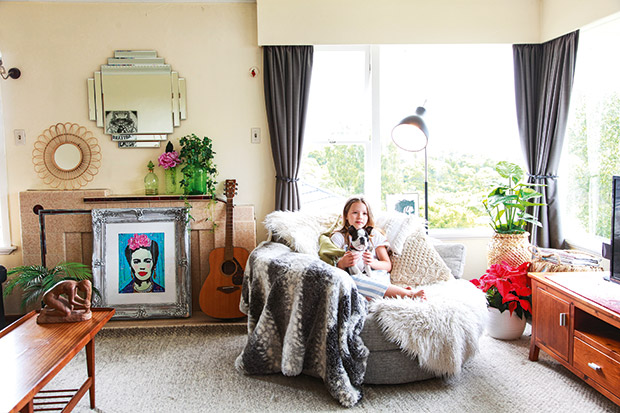
Louise Clark’s Birkenhead home is filled with second-hand finds, including re-covered cushions, art-deco glassware, and a vintage frame given a makeover with chalk paint, distressed with sandpaper. “Combining new and old with patterns and texture can add personality,” she says.
Louise Clark started The Collective to raise funds for the Mental Health Foundation by reviving and repairing unwanted clothing and household objects, some of which might have ended up in the landfill. She hopes the business will change perceptions about buying second-hand clothes and furniture. She prefers the term “preloved”.
“The perception is that the op-shop experience is about rifling through racks of clothing in a smelly store. I want to change that by offering a beautiful boutique store and curating the clothes to make the selection process simple.
“I’d like to change the way people feel about clothing. Fashion is fun and changing your wardrobe is enjoyable, but it’s about having an awareness of what you are buying, the way it’s manufactured and where it comes from.”
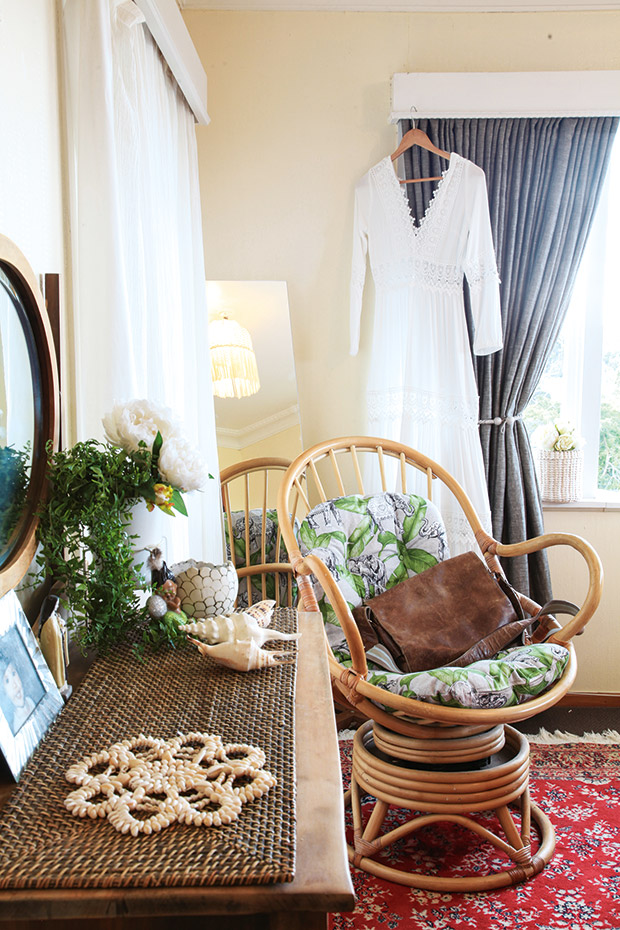
The bamboo chair in the master bedroom was reupholstered in fabric that ties in with the tropical shells on the dresser.
Louise’s colourful home is teeming with items salvaged from the scrap heap. On her wall hangs the patron saint of New Zealand op-shoppers, Vladimir Tretchikoff. His blue-lady print, The Chinese Girl, was all the rage in the 1950s before becoming a cringe-worthy emblem of kitsch. Now it’s a coveted collectors’ piece. Ironically, the retro print is one of only a handful of pieces she has bought new.
Fashion and trends are all about perspective, she says. Louise’s clothes are 80 per cent second-hand and the cyclical nature of style means sometimes it’s hard to tell their era.
She bought a pair of second-hand Zara jeans from her store. Though they are only a couple of seasons old, their vintage patch makes them look 1980s. The jeans are typical of fast fashion, one of many new items released in clothing stores every week and likely to be disposed of within a year. These jeans are one of Louise’s favourite garments, and she takes pleasure in disrupting the fashion-retail system, which accounts for four per cent of waste sent to the landfill.
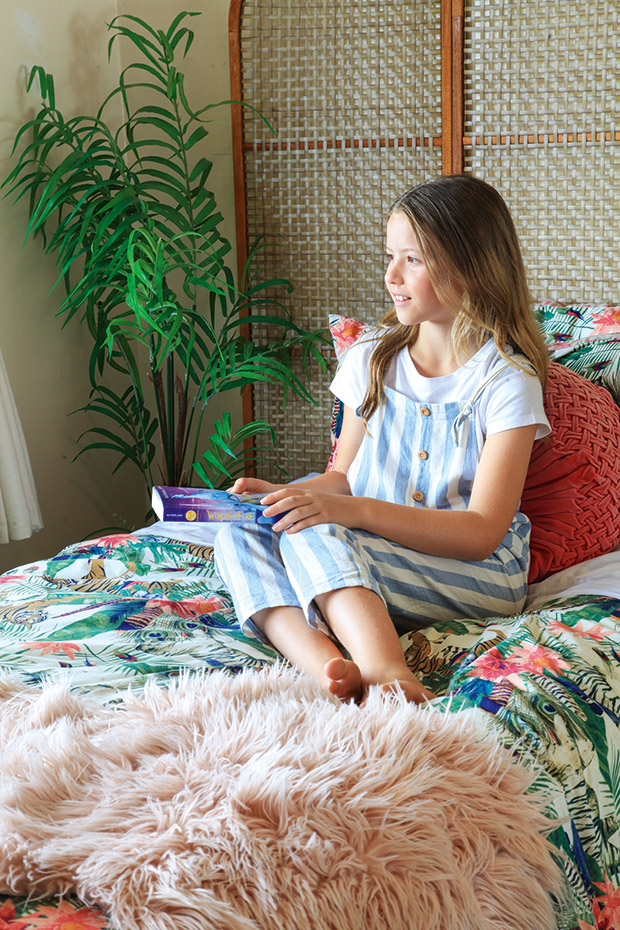
Daughter Billie’s room has a vintage theme.
“Fast fashion is cheap, but it’s terrible for our environment. The fashion industry is the second-largest consumer of the world’s water supply, and it produces 10 per cent of the world’s carbon emissions. But it’s people that drive the demand for throwaway clothing.
“I think buying a mixture of new and preloved pieces is a great way to find a balance between supporting the New Zealand fashion industry while helping the environment.”
The Collective is a social enterprise that donates 50 per cent of its profits to the Mental Health Foundation, an organization close to Louise’s heart. She developed postnatal depression after the birth of her daughter Billie (now 10). Louise and her former partner desperately wanted a child, and Billie arrived after four rounds of IVF. But after her baby was born, Louise slipped into what she describes as “all-encompassing darkness”.
“I felt immobilized, physically and emotionally. I had this debilitating fear. I remember waking up in the morning, and looking at Billie in her cot, and thinking ‘don’t wake up’ because if she did wake up, I’d have to deal with her.
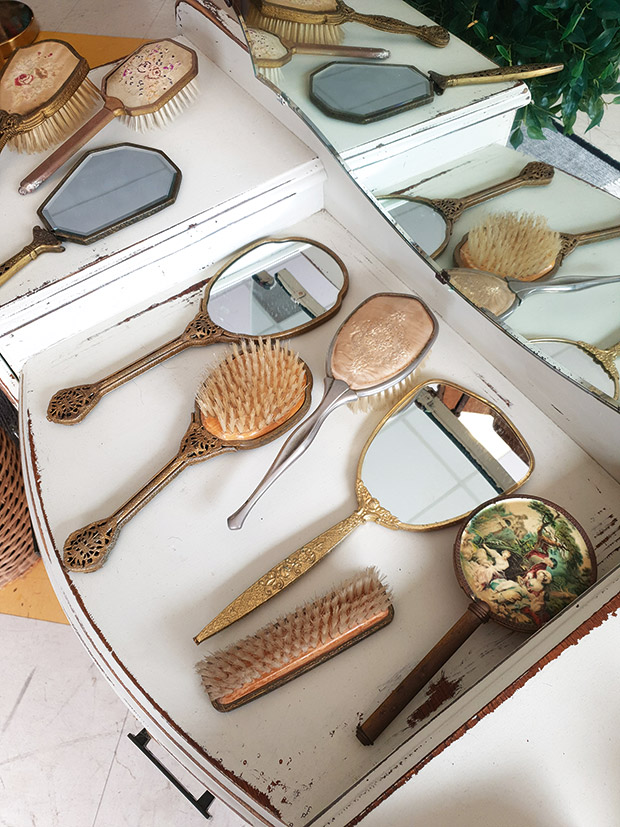
“I couldn’t deal with an infant because I couldn’t deal with myself.”
The new mum sought help from family and Auckland DHB’s maternal mental health services and, while she’s recovered from postnatal depression, her anxiety and depression require ongoing self-care. The Collective is a form of therapy and her way of giving back to two social causes — sustainability and mental health.
“Working in the community and fixing things with (our) hands is therapeutic; the fact that we can combine sustainability with raising awareness for mental health is a beautiful thing.”
LOUISE’S UPCYCLING TIPS
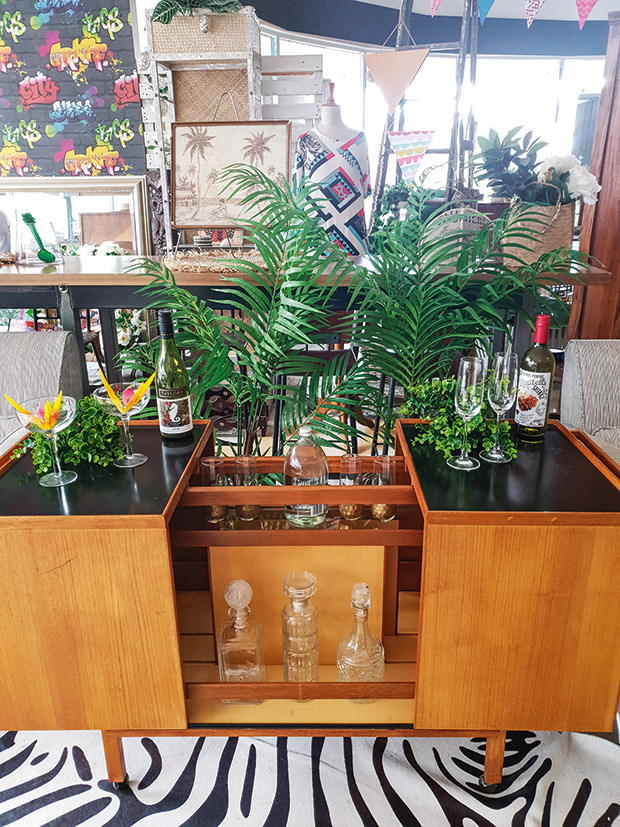
Second-hand pieces on show at The Collective.
Start small. Repainting an old picture frame is an easy beginner project, as is découpage (glueing photos to a piece of furniture and varnishing over the top). “I don’t get much time to upcycle furniture myself any more — volunteers do most of the work for the shop — but when I do, I find it incredibly relaxing.”
Buy from and donate to second-hand shops. Start with a store such as The Collective, which specializes in stylish and organized collections. When donating items to any charity shop, ensure the items are in good working order and are clean and unstained.
Be considerate of what time of year it is and always drop items off within opening hours “Many people donate items to charity stores after Christmas, and the staff become overwhelmed with more items than they can cope with.” The Collective accepts high-quality clothing, furniture and homeware donations. Louise will pay for special pieces of furniture.
Need help? The Mental Health Foundation has a free 24/7 helpline 0800 1737 1737 or text 1737
Visit thecollective.co.nz or follow on Instagram.
Read more stories like these in our latest special edition, Sustainability Through the Seasons, a practical guide to living a greener and more environmentally friendly life 365 days of the year.
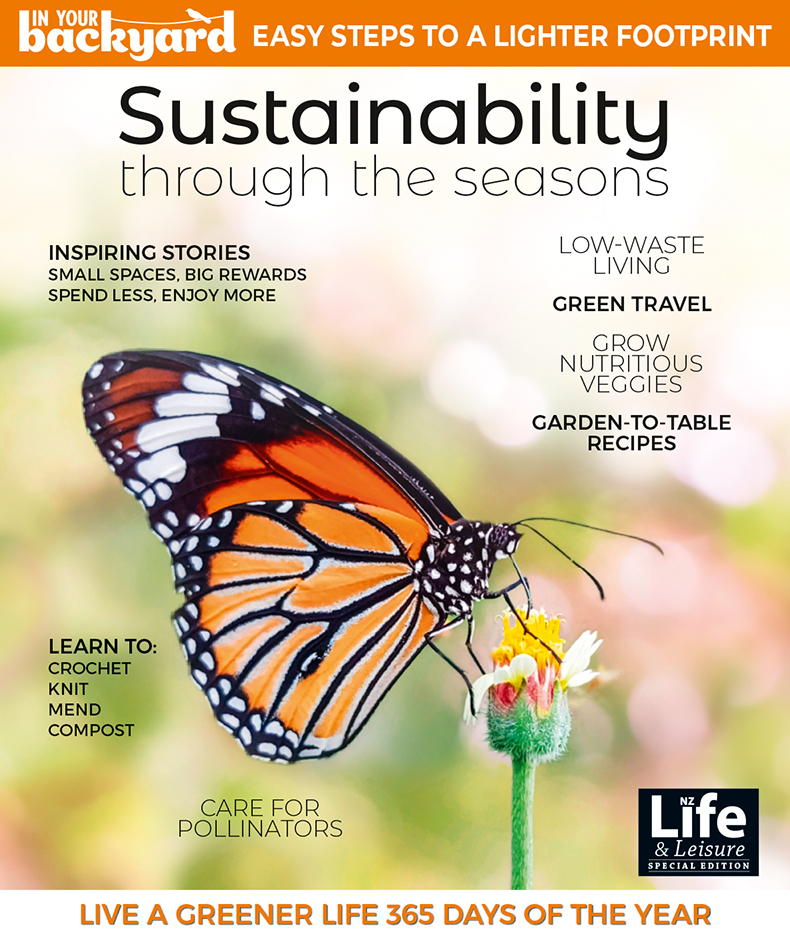
MORE HERE
Japanese Furoshiki: An eco-friendly alternative to paper gift wrapping

